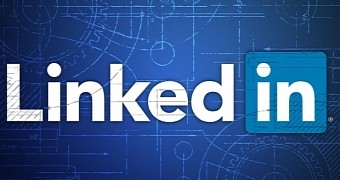Microsoft announced last month that it would take over LinkedIn for no less than $26.2 billion, and although the acquisition itself might not be surprising, many analysts claimed the software giant paid too much for this takeover.
And while Microsoft itself hasn’t commented on the price it has to pay to buy LinkedIn, it appears that the company was actually involved in a bidding war with other companies, and this is how it ended up paying so much for the business social networking service.
A filing with the US Security and Exchange Commission reveals that Microsoft wasn’t the only party interested in purchasing LinkedIn, as Salesforce, Google, and Facebook also submitted takeover offers as part of negotiations that took place behind closed doors.
It appears that Microsoft and LinkedIn officials met for the first time in February 2016 to discuss takeover plans, but in March, there were also meetings with representatives from other interested parties, which are believed to be Google, Facebook, and Salesforce.
Google and Facebook quickly gave up
Microsoft and Salesforce were reportedly the two parties outbidding each other continuously while Google and Facebook decided to leave negotiations after losing the bidding war with the two giants. Salesforce continued to fight against Microsoft in the race for LinkedIn, but Redmond eventually won after it agreed to pay $196 per share in cash only. Salesforce made an offer of $200 in stock and cash, but LinkedIn was looking for a cash-only deal.
The first takeover offer that Microsoft made for LinkedIn was $160 per share, so the company ended up paying $196 per share because of the bidding war against Salesforce, Google, and Facebook. LinkedIn thus proved to be $5 billion more expensive than Microsoft expected, but Redmond decided to go for it anyway.
Rumor has it that Microsoft is now seeking a loan in order to complete the takeover and avoid some taxes, as bringing cash from overseas into the United States would lead to other millions in taxes for the Redmond-based software giant.

 14 DAY TRIAL //
14 DAY TRIAL //